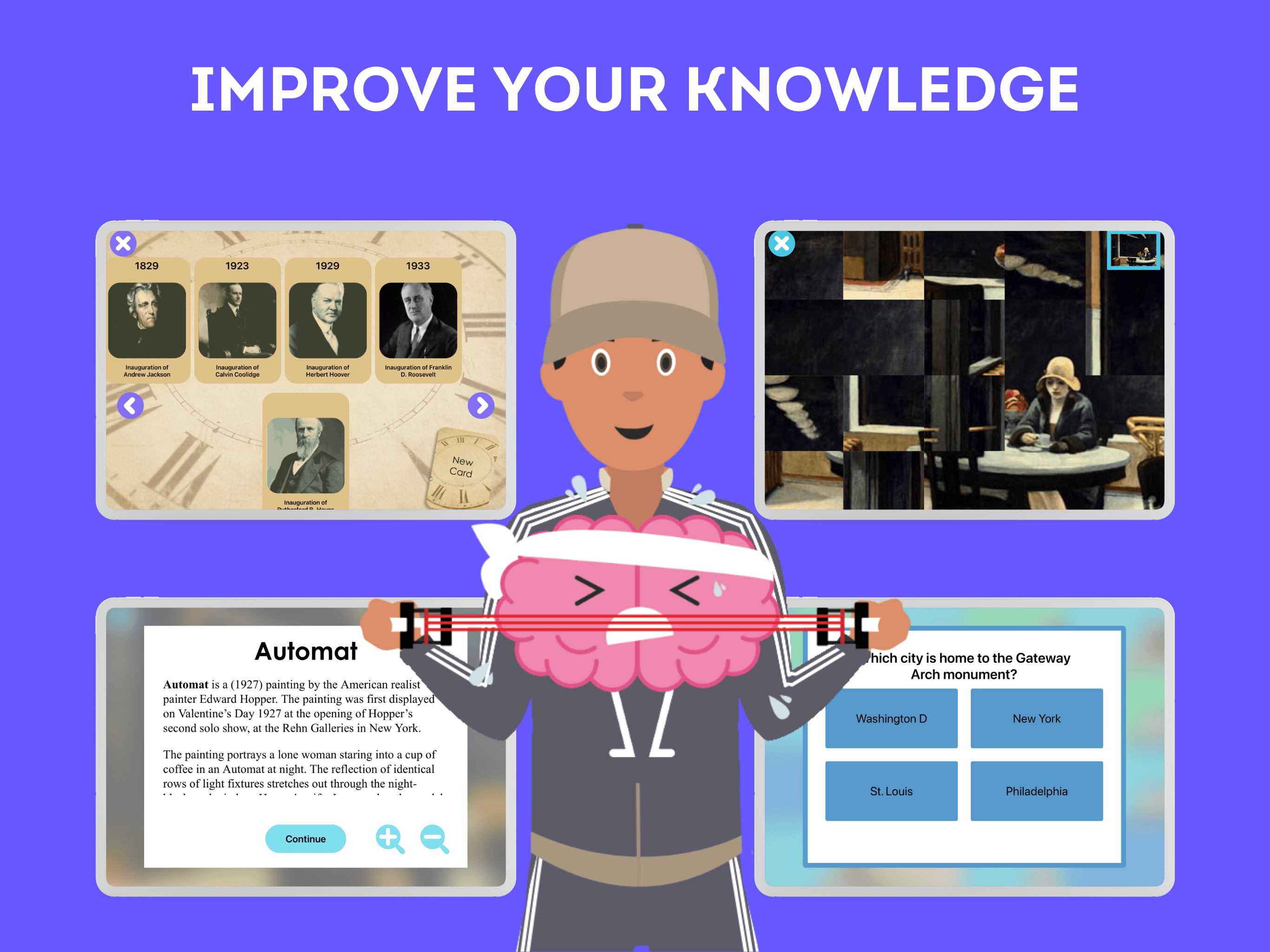Cognitive training is a method used to help people with anxiety manage their thoughts and emotions. Anxiety is a common psychological disorder that can affect a person’s quality of life, preventing them from enjoying their daily activities and often leaving them stressed and worried. Cognitive training focuses on modifying negative automatic thoughts and promoting positive thinking strategies to help people with anxiety better manage their stress and improve their quality of life.
What is anxiety disorder?
Anxiety disorder is a common psychological disorder that affects many people around the world. It is characterized by feelings of anxiety, tension and nervousness, often for no apparent reason. People with this disorder may experience feelings of anxiety, fear and insecurity, even in normal everyday situations.
Symptoms of anxiety may include palpitations, rapid breathing, sweating, trembling, headaches, nausea and dizziness. People with anxiety may also have difficulty concentrating, sleeping and eating properly. In severe cases, anxiety can cause panic attacks, phobias and avoidance of certain situations.
Treatment for anxiety may include a combination of therapies and medications, depending on the severity of the symptoms. Behavioral and cognitive therapies, which focus on changing thoughts and behaviors, are often effective in helping people manage their anxiety. Medications, such as antidepressants and anti-anxiety drugs, can also help reduce anxiety symptoms.
The limits of anxiety in everyday life
Social and family relations
People with anxiety may have difficulty forming relationships, communicating effectively and feeling comfortable in social situations. They may feel isolated and withdraw from social life, which can worsen their anxiety and emotional state.
Physical health
Anxiety can affect a person’s physical health. People with anxiety may experience sleep disturbances, headaches, muscle pain and abdominal pain. They may also be more likely to develop cardiovascular disease and suffer from digestive problems.
Professional performance
This anxiety is likely to affect a person’s job performance. People with anxiety may have difficulty concentrating, making decisions and managing stress in stressful work situations. This can affect their ability to complete their tasks, interact with their colleagues and advance in their careers.
What are the psychological effects of anxiety?
Mental Health
Anxiety can cause symptoms such as restlessness, irritability, nervousness and sadness. These symptoms can lead to a decrease in self-esteem, a loss of interest in daily activities and a deterioration in the overall quality of life.
Making decisions
People with anxiety may have difficulty concentrating, making important decisions or thinking clearly and rationally. This can have a negative impact on their professional and personal lives.
A concrete example of the impact of anxiety on mental health is that of a person suffering from social anxiety. This person may be afraid to speak in public, meet new people or participate in social activities. This fear can lead to a deterioration in self-esteem, a decrease in interest in social activities and a deterioration in the overall quality of life.
Sleep disorders
People with anxiety may have trouble falling asleep, staying asleep or waking up early in the morning. This can lead to daytime fatigue, decreased concentration and productivity, and an increased risk of accidents.

What are the somatic effects of anxiety?
Heart rate and blood pressure
One of the most common somatic effects of anxiety is increased heart rate and blood pressure. This physiological response can be beneficial in acute stress situations, as it allows the body to react quickly. However, if this response becomes chronic due to persistent anxiety, it can lead to high blood pressure and an increased risk of cardiovascular disease.
The respiratory system
People with anxiety may experience feelings of choking, shortness of breath or difficulty breathing. This can lead to hyperventilation, which in turn can cause dizziness, tingling and feelings of weakness.
The digestive system
People with anxiety may experience nausea, vomiting, abdominal pain or diarrhea. These symptoms may be due to increased activity in the sympathetic nervous system, which controls the body’s “fight or flight” response.
What health professionals can help people with anxiety?
Psychiatrists
Psychiatrists are physicians who specialize in the treatment of mental disorders. They are able to diagnose and treat anxiety disorders using a combination of drug and non-drug therapies. Medications prescribed by psychiatrists can help reduce the symptoms of anxiety, including nervousness, tension and panic. Psychiatrists help provide therapies such as cognitive behavioral therapy (CBT) to help patients change the way they think and react to anxiety.
Psychologists
They are mental health professionals who focus on the understanding and treatment of psychological disorders. They can help people with anxiety by providing cognitive behavioral therapy. CBT is a form of psychotherapy that helps people identify and change the thoughts and behaviors that contribute to their anxiety. Psychologists are able to provide exposure therapy, which helps patients overcome their fear by gradually exposing them to situations that cause their anxiety.

Social workers
They are mental health professionals who can help people with anxiety by providing practical and emotional assistance. They can help patients navigate the mental health care system, find community resources and obtain disability benefits. Social workers can also provide attentive listening, stress management counseling and communication skills to help patients better manage their anxiety.
Mental health counsellors
They can help people with anxiety by providing cognitive behavioral therapy. Mental health counsellors are trained to help patients identify the underlying causes of their anxiety and develop strategies to deal with them. They can also help patients learn relaxation and meditation techniques to reduce their anxiety.
The benefits of cognitive training for people with anxiety
Skill enhancement
Cognitive training for skill awareness involves helping individuals recognize their own past skills and accomplishments in order to build self-esteem and confidence. This can be done by using techniques such as reflection, journaling, practicing self-observation and encouraging participation in skill-building activities.
For example, a person may have low self-esteem in interpersonal communication. By using cognitive training to be aware of her skills, she can be encouraged to reflect on situations in which she has communicated effectively with others, keep a journal of her communication accomplishments, and participate in activities that reinforce her skills, such as joining a discussion group.
Social anxiety
Cognitive training to overcome social anxiety involves helping individuals change their negative thoughts and adopt a more positive and realistic perspective of social situations. This may include techniques such as psychoeducation, negative thought modification, relaxation and progressive exposure.
For example, a person with social anxiety may have negative thoughts such as “everyone will judge me” or “I’ll make an embarrassing mistake. Cognitive training can help this person replace these thoughts with positive, realistic statements such as “people don’t judge me as much as I think they do” or “everyone makes mistakes and that doesn’t make me a bad or embarrassing person.”
The benefits of cognitive training on anxiety
Information processing
With the strength of cognitive functions, individuals can better process information and learn to regulate their emotions. For example, by improving their attention, they can better focus on important tasks and avoid being distracted by anxious thoughts or environmental stimuli that are not important. In particular, an evolution in working memory, they can better process information in real time and avoid feeling overwhelmed by complex or stressful situations.
Mental flexibility
By improving their mental flexibility, individuals can better adapt to changing situations and find creative solutions to problems. This can allow them to deal with challenges more effectively and reduce their anxiety by not feeling helpless or trapped in difficult situations.
Ability to make decisions
By increasing the ability to make decisions, people can better control their environment and avoid situations that might trigger their anxiety. They can also learn to realistically assess risks and take steps to minimize those risks, which can help them feel safer and more confident.
CLINT, a brain training program to help people with anxiety
CLINT is a brain training program that will help people with anxiety to better process information, regulate their emotions, adapt to changing situations and make informed decisions.
The CLINT Brain Training program was designed specifically for adults to keep the brain healthy through fun and challenging brain exercises. It has over 30 cognitive games and targets concentration, focus, reflexes, language and many other cognitive functions.

Other articles that might interest you:
How Parents Can Contribute to Teacher Training
As we delve into the realm of education, it becomes increasingly clear that teacher training is not merely a...
Differentiated Instruction Approaches: Training and Practical Application
Differentiated instruction is a pedagogical approach that recognizes the diverse needs of students in a classroom. It...
Key Skills Teachers Need to Support Students with Special Needs
As we embark on our journey to support children with special needs, it is essential for us to cultivate a deep...










